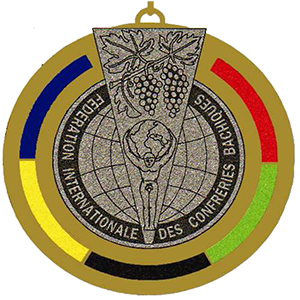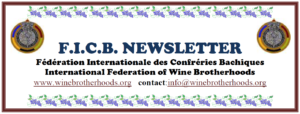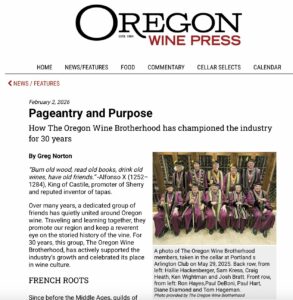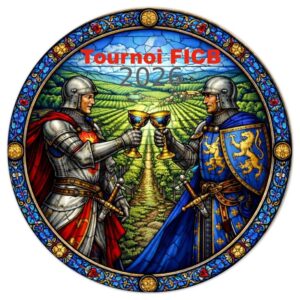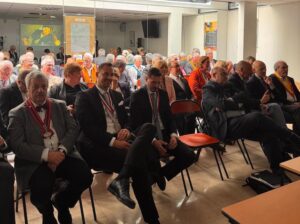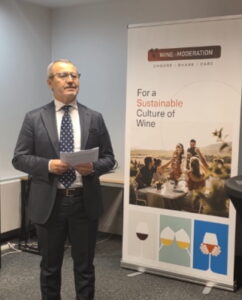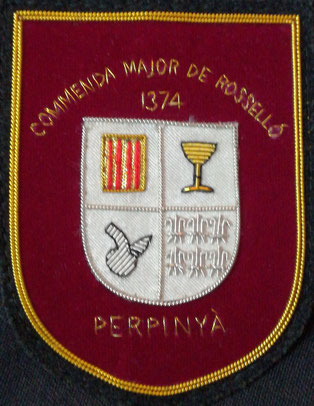
In the year 2024, the Commende Majeure du Roussillon, a brotherhood created to “guard the duty and right of the vine and wine” and “its loyalty to the land of Roussillon”, celebrates a double anniversary :
- that of its ancestor, the Ordre des Gardes du Privilège pour Garder le devoir et le droit de la Vigne et du Vin, created in 1374 by King Peter IV of Aragon “the ceremonious”,
- and its own, since it was created in 1964 as a revival of this ancient order.
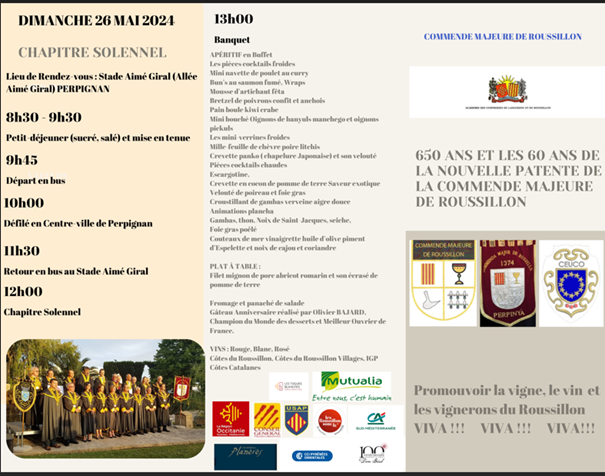
A 2 1/2-day program has been set up for the occasion, including vineyard tours, lectures, a parade preceding a chapter with numerous inductions, and of course meals celebrating the gastronomy and wines of Roussillon.
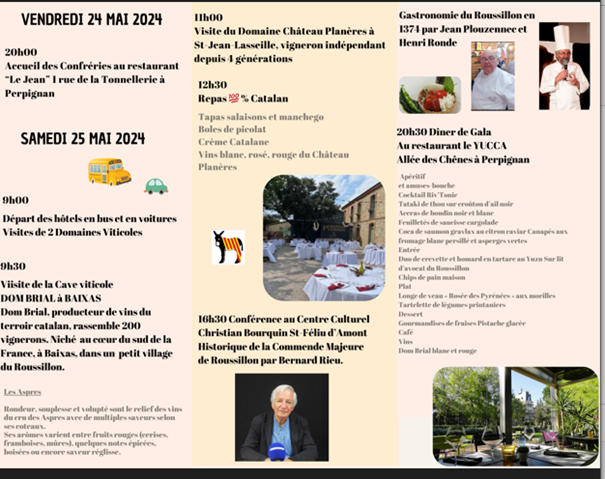
After a welcome dinner at Restaurant Jean, where a typically Catalan meal was served, including the famous cargolada (snails cooked on the grill), participants were able to discover the cellars and wines of the Dom Brial / Château des Pins cooperative, which groups together 200 cooperative members and manages 2000 ha of vines,
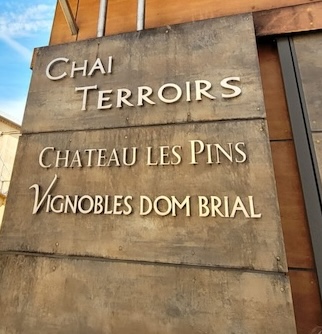
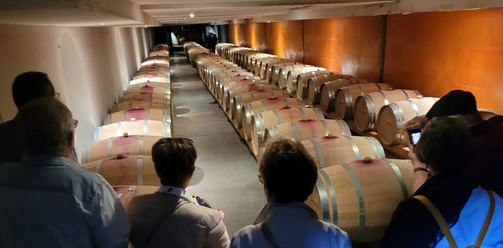
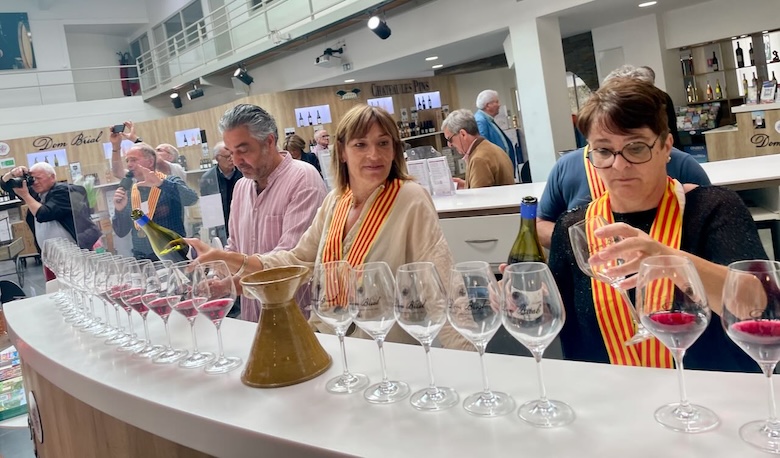
as well as those of Château Planères, whose owner Gilles Jobert is at the origin of the Côtes du Roussillon-Aspres appellation,
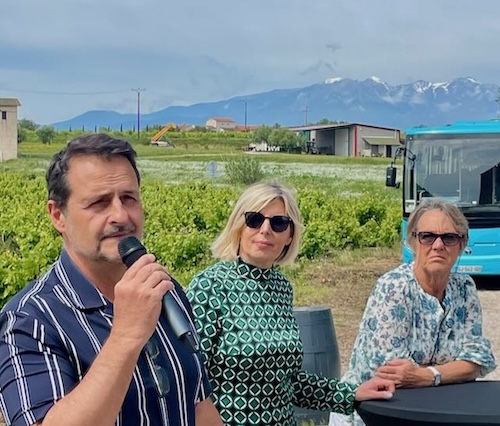
A Catalan lunch featuring tapas, picoulat (white beans in sauce served with meatballs), Catalan cream and local wines was served.
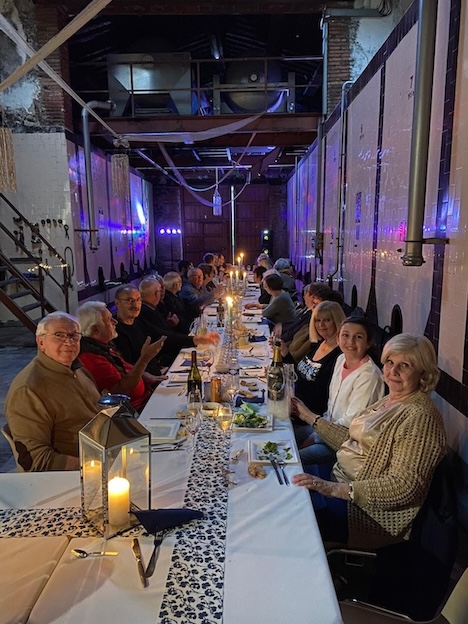
Two lectures were given in the afternoon.
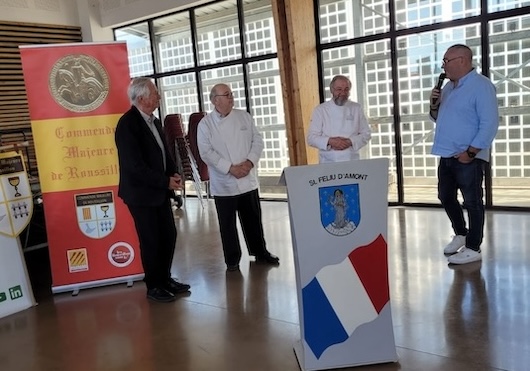
Bernard Rieu presented the history of the vine in Roussillon, from its introduction by the Greeks, its use during the Roman Empire, to the Middle Ages, when the figure of Arnaud de Villeneuve stands out. He was a doctor, surgeon and scholar who mastered alcoholic distillation and is credited with the invention of “vin doux naturel” (wine whose fermentation is interrupted by the addition of eau-de-vie, and is therefore naturally sweet), and from whom we can learn the following lesson :
“Wine comforts the mind. It enables it to tackle subtlety and cope with difficulty. It lavishes the soul with boldness, solicitude and liberality. Wine creates the perfect harmony of parts. Body, mind and soul cooperate. “
These “vins doux naturels” (naturally sweet wines) were the glory of Roussillon wines, but changes in tastes, with the move upmarket in appellation wines (AOCs were created in the 1930s for VDNs, but in the 1970s for dry wines) led to changes in the vineyards.
La Commende Majeure du Roussillon, created in 1964, a member of the FICB and CEUCO, supports Roussillon winegrowers and helps promote their wines at events such as Perpignan, European City of Wine (in 2019), the grape harvest at Europe’s highest vineyard (Sainte Léocadie at 1450 m), and so on.
Jean Plouzenec and Henri Ronde, two Toques Blanches, (an international association of chefs) then introduced the audience to cooking in 1374, based on Sent Sovi, an ancient book by an unknown author featuring over 200 recipes, and L’art de manger, boire et servir à table by François Eiximenis, a 14th-century Franciscan monk.
A gala dinner brings together all the participants and many other members of the brotherhood at Toques blanches du Roussillon member Alain Delprat’s Yucca restaurant.
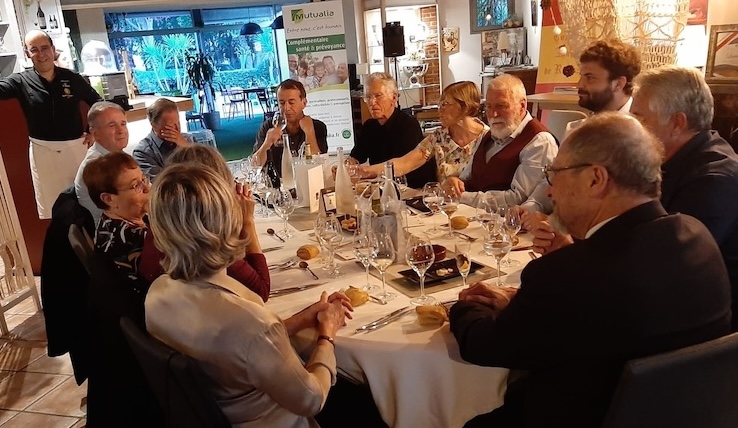
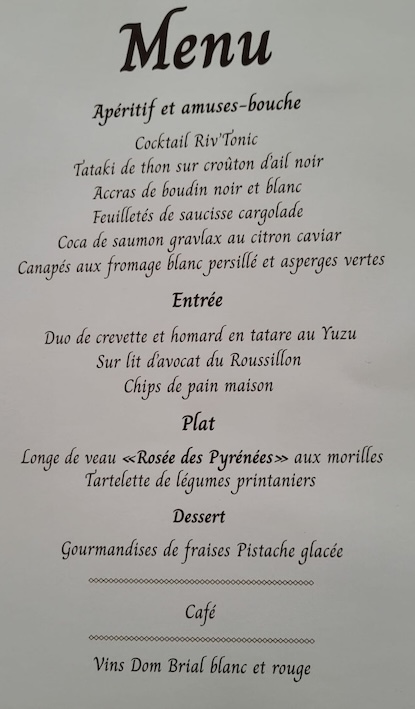
The absence of Grand-Maître Jean-Claude Estirach on health grounds was regretted, and best wishes were expressed for his recovery.
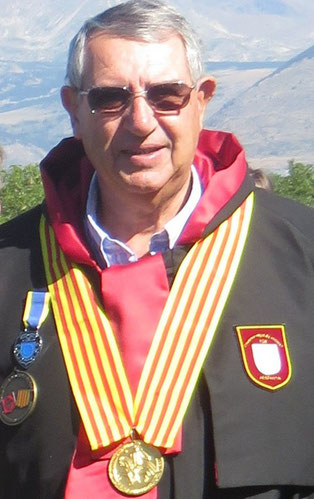
Marc Lesk, General Secretary of the FICB, presented a message from President Alan Bryden, and presented Xavier Hardy, Jean-Claude’s loyal second and organizer of the trip, with the FICB medal.
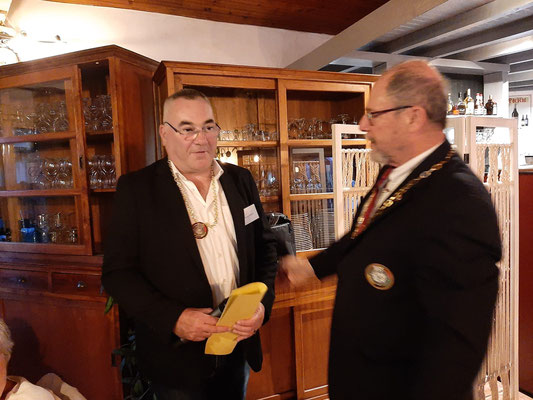
Finally, on Sunday, a parade brought together some thirty Confréries, many from the Occitanie region, but some from Northern France (such as the Confrérie des vins d’Orléans-Clery) and even Belgium.
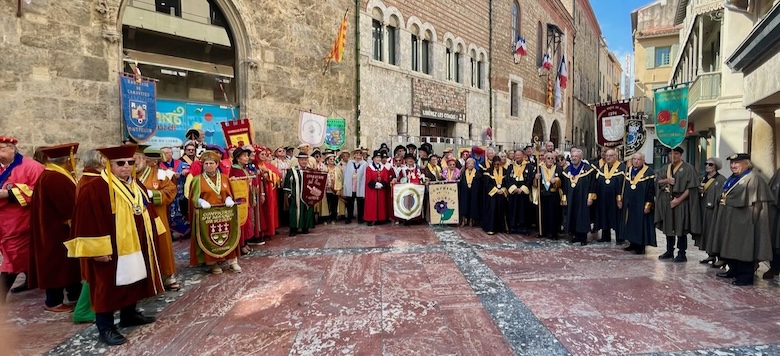
A cobla, a Catalan instrumental ensemble, accompanied the parade with its sardanes and other pieces representative of the Catalan identity.
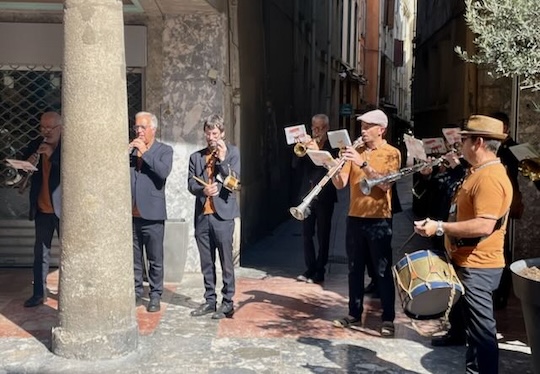
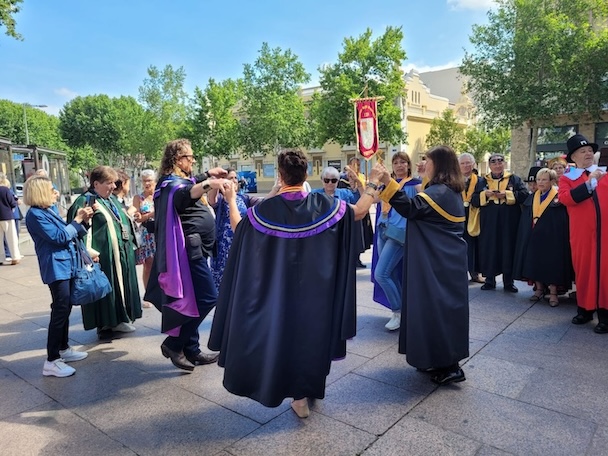
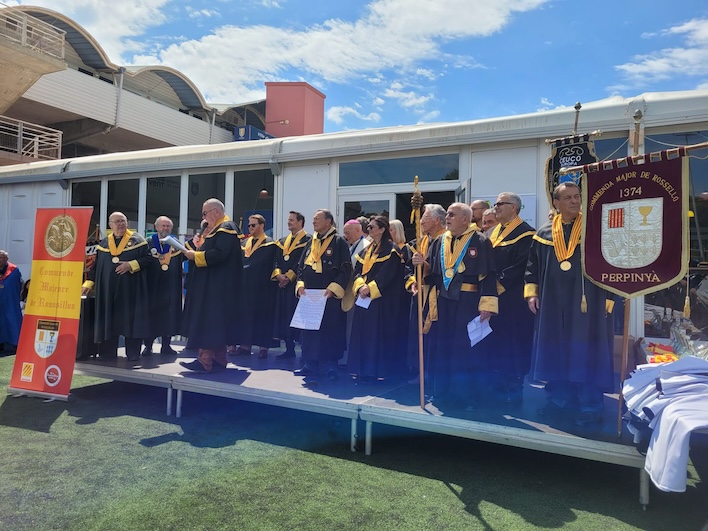
The chapter that followed, in the Aimé Giral stadium, was the occasion, after the blessing of the banners, to induct some ten postulants,
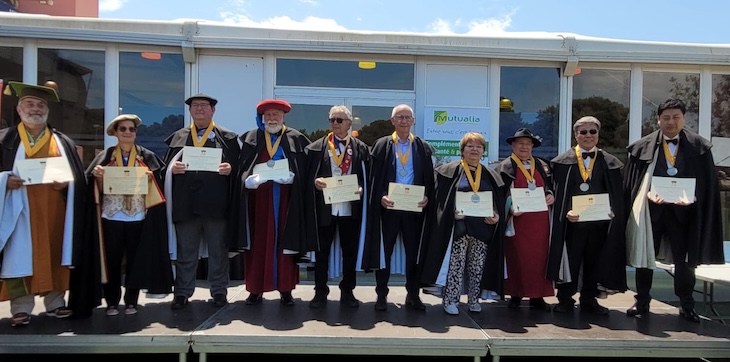
who had to pass the “porro” test (drinking “à la régalade”) before taking the oath.
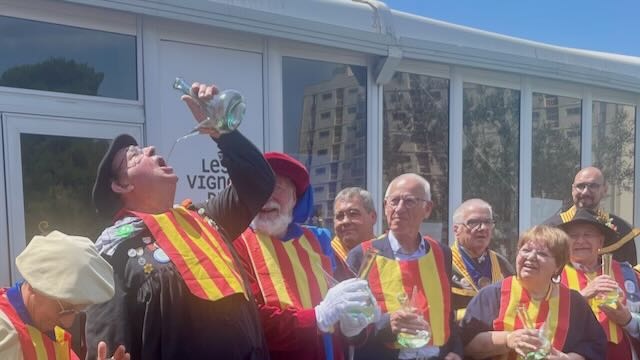
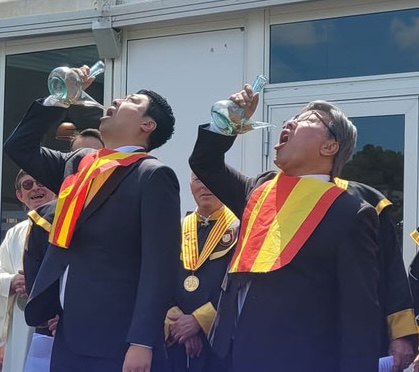
The banquet that followed was the final touch to a fireworks display that lasted 2 days, with a delicious aperitif lunch,
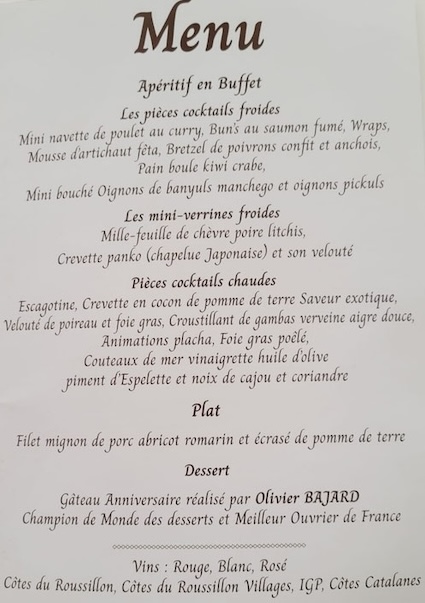
followed by a meal with two desserts, in honour of rugby and birthdays!


VIVA ! VIVA ! VIVA !
We’d like to thank the Commende Majeure du Roussillon for organizing this wonderful symposium, and we’re convinced that that this beautiful wine-growing region can attract enthusiasts from all over the world!
Further details and photos can be found on the Commende Majeure du Roussillon website.
